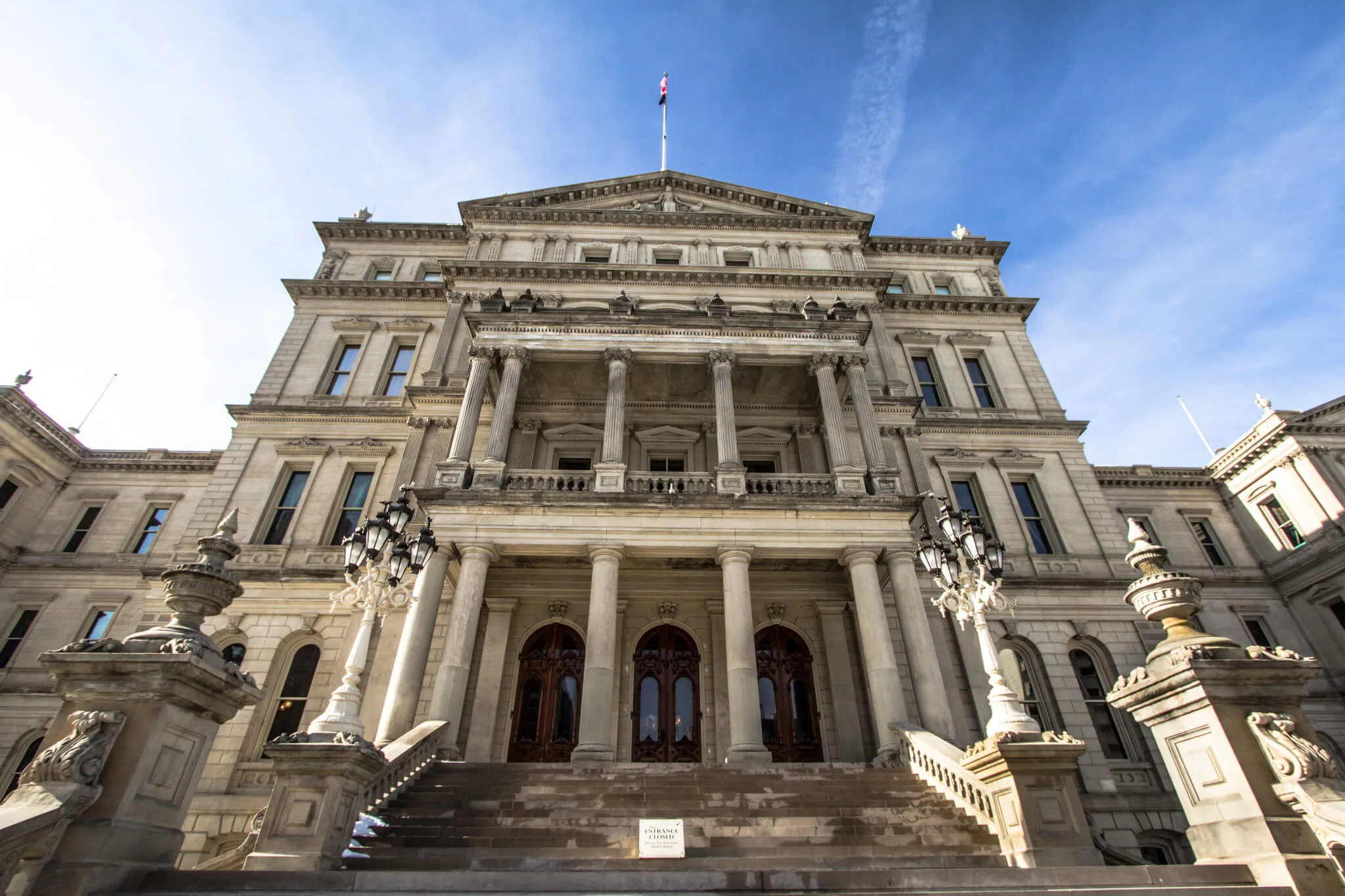
Michigan gets an F for transparency, experts say. A new order from the governor will improve openness, but the state still has a ways to go.
Need to Know
- Michigan ranks last in the country for government transparency and accountability.
- Several reforms are under consideration or in play, but transparency-focused bills have historically stalled in the GOP-controlled Senate.
- Republicans running to unseat Whitmer haven’t given voters any indication they’ll be any more transparent.
LANSING—Spring forward isn’t the only policy that recently brought more sunshine into the lives of residents.
Last week, Gov. Gretchen Whitmer and other elected officials ushered in a ray of transparency by making it easier for citizens to obtain government information and files—cracking a window to a house that still remains largely sealed off from the outside world. Observers say the state has a long way to go to truly become transparent.
On Friday, Whitmer signed an executive order—an independent action not endorsed by the legislature—requiring that all departments accept credit card payments for records requests covered by the federal Freedom of Information Act (FOIA). These open records requests are used by watchdog organizations, reporters, and engaged members of the public to gain access to government communications and documents.
“We will continue getting things done and ensure we make improvements whenever possible,” Whitmer said.
Days before, Attorney General Dana Nessel announced the same policy within her department.
MEET MI LEADERS: Meet the Woman Tasked With Helping to Bring Economic Development to Rural Michigan
But critics say the change, while useful, is only a small step for a state that has ranked dead last in government transparency in recent years. Michigan is one of only two states that exempts its executive and legislative branches from FOIA requests, and the nonprofit investigative Center for Public Integrity rated Michigan an F for accountability.
Most states also require financial disclosures from elected officials, but not Michigan.
“We have continued to push to make sure we get a legislative solution that holds all branches to similar standards,” Whitmer said. “So we’ll continue working in this space.”
As Whitmer officially declared for re-election, these issues were once again spotlighted during Sunshine Week, a nationally recognized initiative introduced in 2005 designed to bring more transparency to government.
During her first campaign, Whitmer promised to open up her office to records requests. She has yet to do so.
But Whitmer’s opponents in the upcoming race haven’t given voters any glimmer of hope that they’ll be more transparent. In fact, James Craig, a Republican frontrunner and the former Detroit Chief of Police, has a troubling record that allegedly includes using public funds for his campaign.
During her time in office, Whitmer has taken several transparency-tailored actions. In 2019, she banned state employees from using private emails to conduct government business. She also has voluntarily disclosed her personal financial statements and calendars. Lt. Gov. Garlin Gilchrist has done the same. That is not required by law, though many believe it should be.
“I think we’ve done an incredible amount in terms of transparency,” Whitmer said.
YOUR VOTE MATTERS: Michigan GOP Candidate Who Made Controversial Rape Remarks Has History of Sexist, Racist, and Anti-Semitic Comments
Each legislative session since 2015, Sens. Jeremy Moss (D-Southfield) and Ed McBroom (R-Vulcan) have introduced legislation to open the legislature and executive branch up to FOIA requests.
The bill is under consideration by the Senate, where it has died in past years.
Various other legislative reform packages, which span from restrictions on lobbyists to financial disclosures, also remain trapped in the GOP-controlled legislature.
“Forty-eight other states have managed to make transparency work,” Moss said. “It has not disrupted the core functions of government there, and it would not disrupt the core functions of government here if we passed the Legislative Open Records Act that the Senator from the Upper Peninsula and I drafted more than seven years ago when we served in the Michigan House of Representatives.”

VIDEO: Trump isn’t the only republican facing charges for alleged financial crimes
https://www.tiktok.com/@gandernewsroom/video/7361494909938978090 A whole lot of Michigan Republicans and lobbyists are facing criminal charges for...

VIDEO: It’s expensive to be poor in Michigan
https://www.tiktok.com/@gandernewsroom/video/7361154790300060974 Ever heard of predatory payday loans? Here’s how new laws could help protect...

Here’s everything you need to know about this month’s Mercury retrograde
Does everything in your life feel a little more chaotic than usual? Or do you feel like misunderstandings are cropping up more frequently than they...

The ’Gander wins multiple 2023 Michigan Press Association awards
MICHIGAN—The ’Gander Newsroom has earned multiple awards in the 2023 Michigan Press Association Better Newspaper Contest. The awards were announced...

Michigan Republicans ask Supreme Court to restrict medication abortion access
A lawsuit supported by Republicans could disrupt access to the most common form of abortion—even in Michigan, where reproductive rights are...






